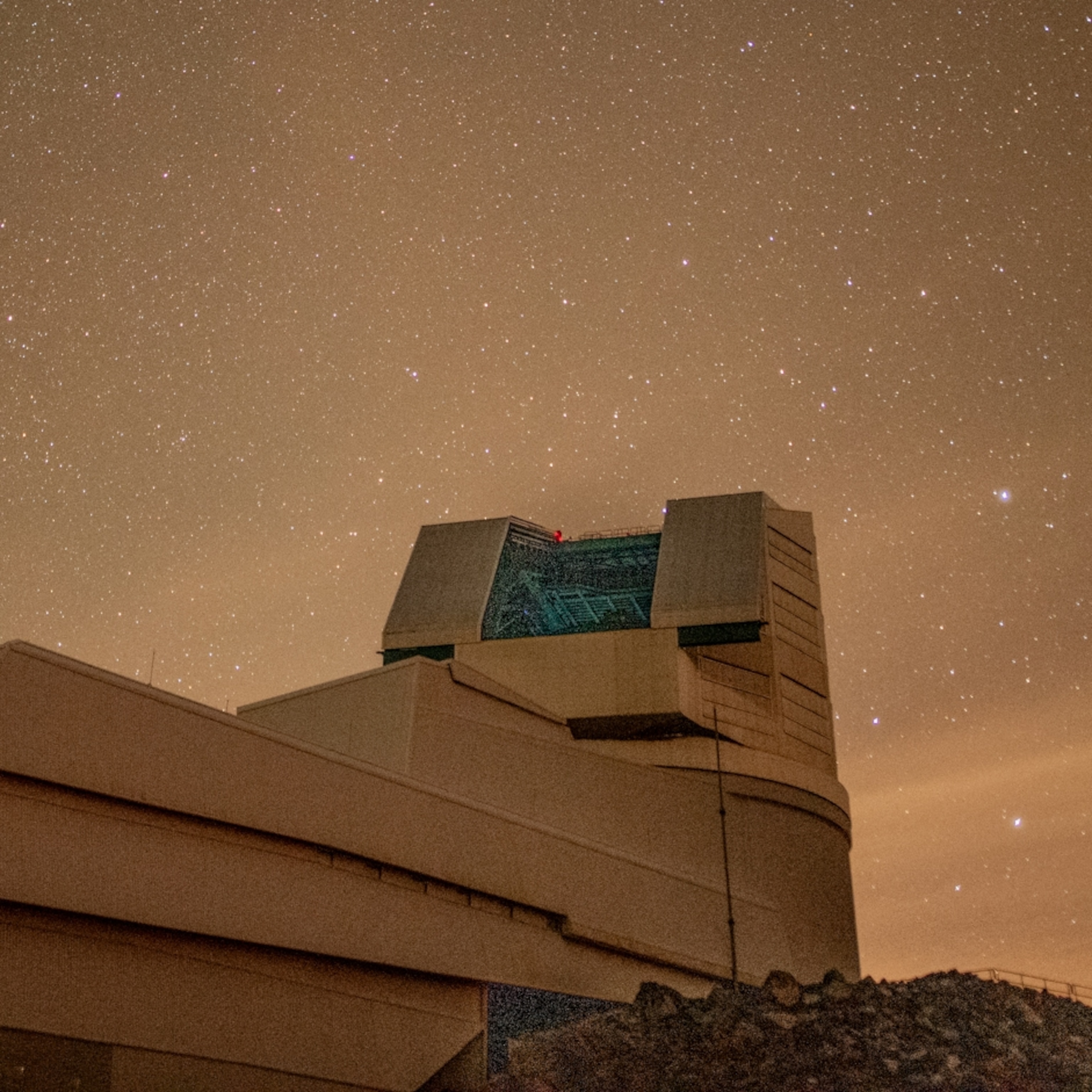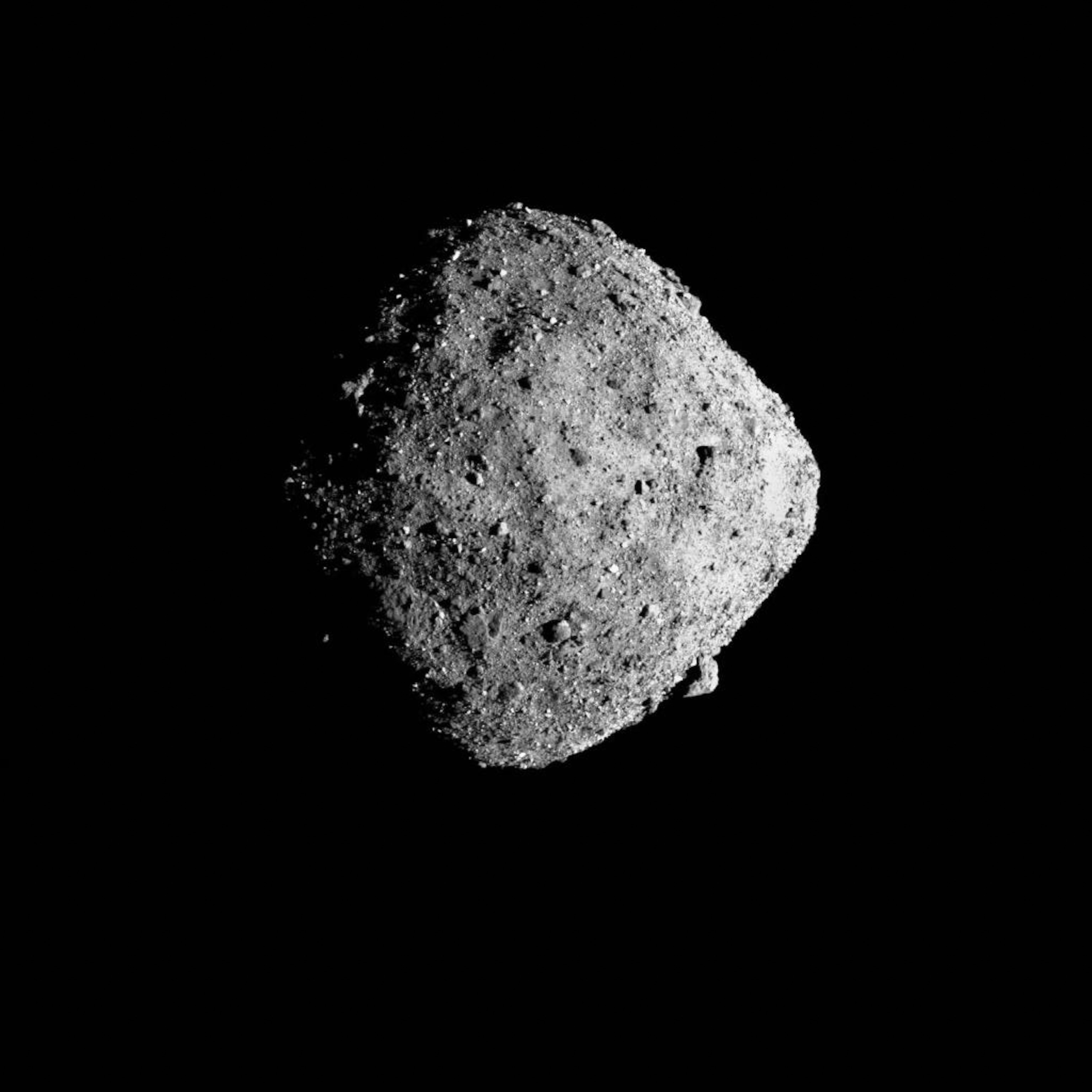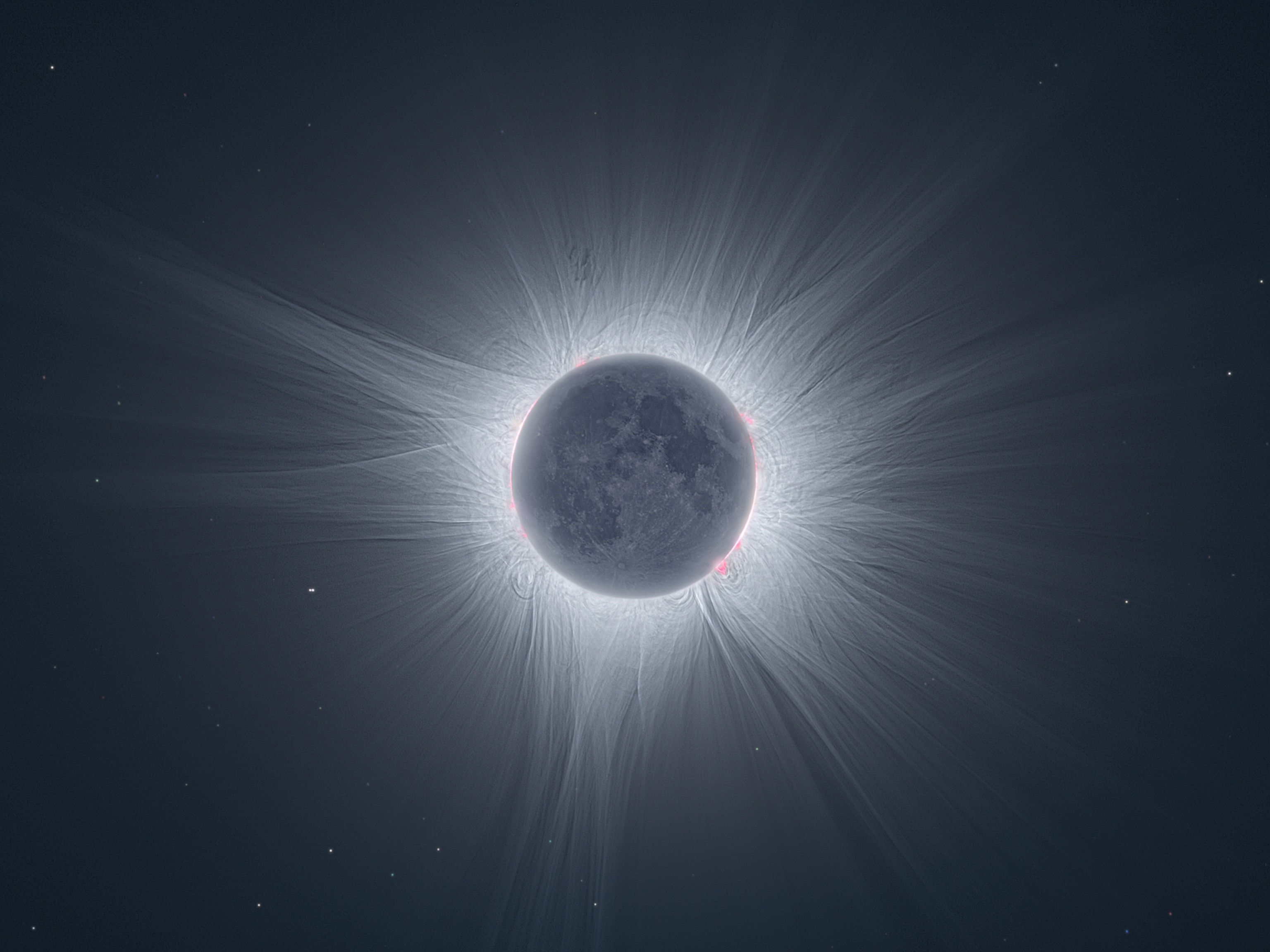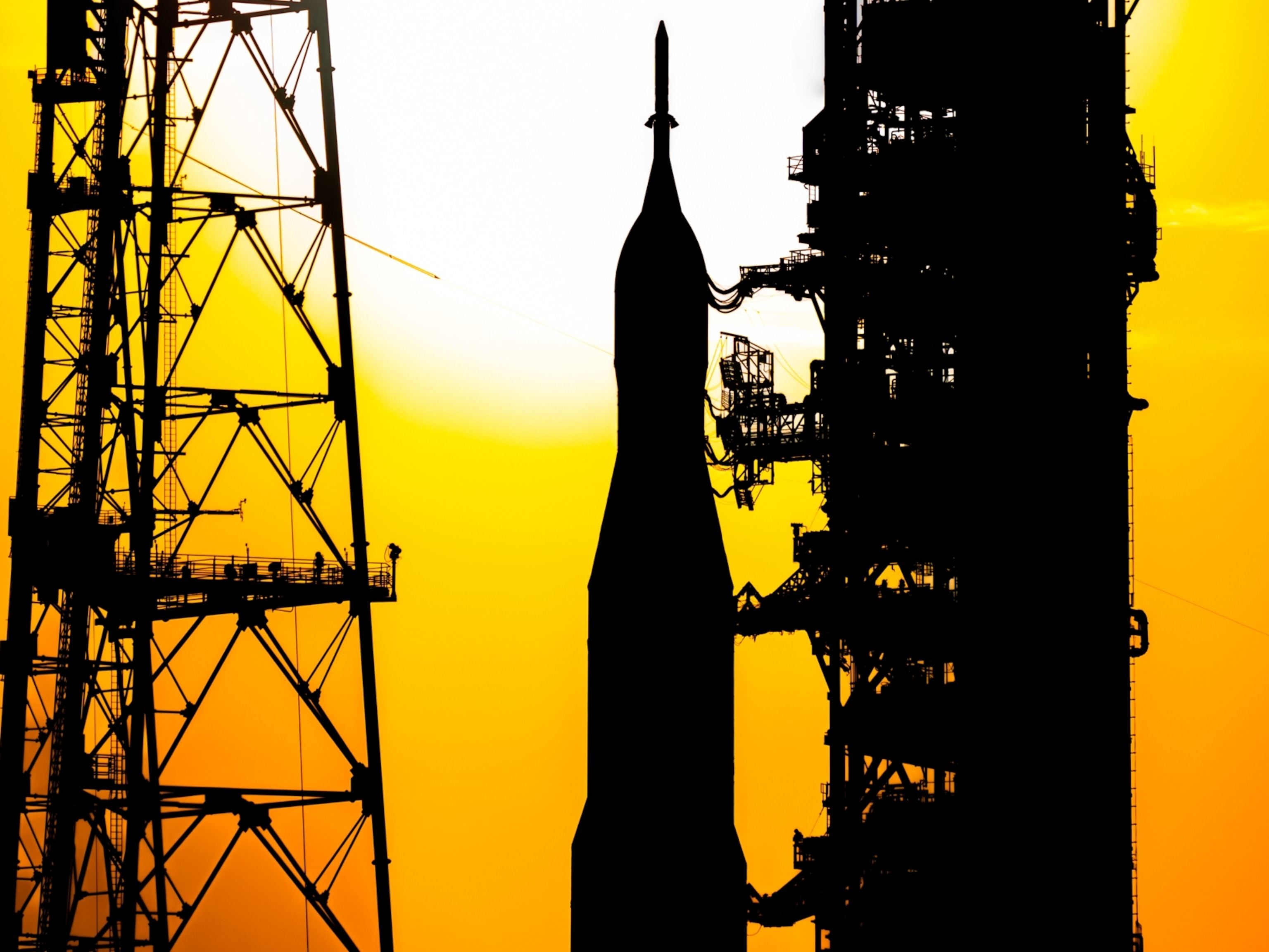
This asteroid is one of the most likely to hit Earth. Here’s what it means for our future.
New ultraprecise measurements show that the asteroid Bennu has a higher chance than thought of impacting our planet sometime in the next 300 years, NASA says.
For hundreds of millions of years, a top-shaped rubble pile called Bennu has orbited the sun in relative isolation. The asteroid, about a third of a mile wide at its equator, poses no immediate threat to our planet. But hundreds of years from now, there is a small chance that Bennu could slam into Earth.
In a new study published in the scientific journal Icarus, scientists used data from NASA’s OSIRIS-REx spacecraft to make a precise calculation of Bennu’s orbit and its future proximity to our home planet. The researchers then analyzed the impact hazard between now and the year 2300. The study finds a 1-in-1,750 chance of a future collision over the next three centuries—a slightly higher probability than previously estimated.
Nearly all of the riskiest encounters with Bennu will occur in the late 2100s and early 2200s, with the single likeliest impact coming on the afternoon of September 24, 2182. On that Tuesday, Bennu has about a 1-in-2,700 chance of hitting Earth.
The team—led by Davide Farnocchia, a navigation engineer at NASA’s Jet Propulsion Laboratory—reached its revised estimate by pinpointing Bennu’s distance from Earth to within about seven feet at dozens of times between 2019 and 2020. That level of precision is like measuring the distance between the Empire State Building and the Eiffel Tower to within a few thousandths of an inch.
“Bennu is by far the best characterized asteroid in the solar system,” says University of Arizona planetary scientist Dante Lauretta, OSIRIS-REx’s principal investigator and the study’s senior author. “We know where it’s going to be over 100 years into the future, within meters. No other object in the solar system has that level of fidelity to its orbital solution—even Earth!”
University of Arizona planetary scientist Amy Mainzer, an expert on near-Earth asteroids who wasn’t involved with the study, lauded the team’s “absolutely white-glove” calculations. “If you want to be able to predict where [an asteroid] is going to go in the future, that prediction is entirely determined by how well you can measure where it is today,” she says. “This team has made an extremely precise measurement.”
Despite the slightly higher chance of impact, the risks from Bennu shouldn’t keep anyone awake at night. There’s more than a 99.9 percent chance that Bennu will not hit Earth in the next three centuries, and an impact from Bennu wouldn’t cause a mass extinction like the dino-killing Chicxulub impact 66 million years ago. That asteroid was probably about six miles across; Bennu is less than a third of a mile wide, on average.
Even so, a collision with Bennu would be regionally devastating. An impact would pack the energy of more than 1.1 billion tons of TNT, roughly two million times the energy of last year’s devastating port explosion in Beirut, Lebanon.
Pinpointing an asteroid
Ever since Bennu’s discovery in September 1999, astronomers have carefully tracked the asteroid’s orbit with ground-based telescopes, including Puerto Rico’s iconic but now lost Arecibo Observatory. These data have let astronomers predict Bennu’s future location reasonably well over the next century.
Bennu is classified as a “potentially hazardous asteroid,” meaning the object is more than 460 feet (140 meters) wide and could theoretically come within 4.65 million miles of Earth. A 2014 study found that the asteroid had roughly a 0.037 percent chance of colliding with Earth between 2175 and 2199.
But until now, simulations have run into issues beyond September 2135. Previous predictions had found that Bennu will pass within 75,000 to 330,000 miles of Earth in 2135, possibly taking the asteroid closer to Earth than the moon. Bennu has practically no chance of hitting Earth then, but depending on precisely when and where Bennu makes its close approach, our planet’s gravity could tweak the asteroid’s orbit enough to put it on a future collision course.
Computer simulations have identified the small regions of space that Bennu would have to pass through to set up a future impact. The key question is whether Bennu’s actual trajectory in 2135 will pass through any of these “keyholes,” which range from several hundred feet to a few miles wide. Answering that question requires scientists to chart Bennu’s current trajectory—and everything that could affect its future path—with unprecedented precision.
OSIRIS-REx arrived at Bennu in late 2018 as NASA’s first—and humankind’s third—attempt to sample the surface of an asteroid. The spacecraft, which snatched a dusty, pebbly sample in October 2020, is currently on its way back to Earth to drop off the precious material. But before it grabbed its sample, OSIRIS-REx spent nearly two years orbiting and studying rubble-strewn Bennu.
Because the spacecraft spent so long tagging along with the asteroid, Farnocchia and his colleagues were able to use data from OSIRIS-REx to precisely chart the asteroid’s location. Their approach had the flavor of a high-school trigonometry problem: If you know the distance from OSIRIS-REx to Bennu, and the distance from OSIRIS-REx to Earth, then you can figure out the distance between Earth and Bennu.
The team focused on periods when researchers knew OSIRIS-REx’s position relative to Bennu to within a meter (3.3 feet), based on images the spacecraft was taking of the asteroid’s surface. They then measured the timing of radio signals exchanged between OSIRIS-REx and Earth to within 15 billionths of a second.
Combining these data meant that Farnocchia’s team could calculate the distance between Earth and Bennu to within several feet, at distances ranging from 52 million to more than 201 million miles.
The team also used OSIRIS-REx data to constrain a key non-gravitational force acting on Bennu that’s known as the Yarkovsky effect. As sunlight heats up Bennu’s surface, the asteroid’s surface re-emits energy as it cools. Because Bennu rotates, the net result is a subtle thrust acting on the asteroid.
Farnocchia’s team is now able to provide a precise estimate of how the Yarkovsky effect tweaks Bennu’s orbit over time. In a NASA press briefing on August 11, Farnocchia noted that this force is equal to the weight of three grapes on Earth—and that’s enough to cause Bennu to drift by about 934 feet a year.
A swirling solar system
The new study finds that in 2135, Bennu will come within about 123,000 miles of Earth’s surface, give or take 6,000 miles, a much more precise range than previous estimates. Even though this finding rules out many previously identified keyholes, some keyholes—and future collision courses—still fall within the orbit’s margin of error. From there, the team was able to revise their estimates for Bennu’s collision risk.
The lingering uncertainty over the space rock’s future trajectory doesn’t stem from the asteroid itself, or even from OSIRIS-REx’s data. It comes from the rest of the solar system.
When Farnocchia and his colleagues ran their simulations, they had to account for many factors, including how sunlight heats up Bennu and how hundreds of other objects in the solar system, even as far away as Pluto, gravitationally tug at the asteroid. The trouble is, researchers had to estimate the masses for most of the objects within a key group: the 343 largest bodies in the asteroid belt.
“It’s amazing to me that other asteroids have any influence at all,” says Lauretta. Once other sources of error get small enough, “these effects show up, and you’re like, Wow.”
Future missions should help refine those estimates. NASA’s upcoming Near-Earth Object (NEO) Surveyor mission, scheduled to launch in 2026, is an infrared space telescope designed to look for asteroids’ heat signatures, which can be used to estimate their sizes. The telescope is expected to discover hundreds of thousands more asteroids, as well as provide better data on the asteroids that have already been found.
“You want to know as much as you can about as many of the objects out there [as you can], so that you have a reasonable idea of what’s likely to happen,” says Mainzer, the NEO Surveyor’s principal investigator.
Mainzer and Lauretta add that sending more spacecraft to more asteroids would help—and OSIRIS-REx itself is poised to get in on the action. In September 2023, the spacecraft will fly by Earth, drop a capsule full of Bennu samples into the Utah desert, and continue its journey through the solar system. So far, Lauretta’s team has found only one viable follow-on target for OSIRIS-REx: the near-Earth asteroid Apophis, which will make a close approach to Earth in April 2029.
Earth is safe from Apophis for at least the next century. But setting aside its risks to our planet, visiting worlds like Apophis will give scientists whole new vistas and terrains to explore—and a broader sense of the solar system’s history.
Humankind also has more than a century to continue monitoring Bennu’s risk to Earth—and to modify that risk, if necessary. Already, space agencies are testing the procedures and technologies needed to neutralize an asteroid’s threat. In 2022, NASA’s DART spacecraft will slam into a roughly 560-foot-wide moonlet orbiting a near-Earth asteroid, with the goal of altering the moonlet’s orbit.
If humankind is threatened by an asteroid impact in the future, bigger versions of these “kinetic impactors” could be used to nudge the asteroid into a safe orbit—so long as we have at least several years’ notice before a predicted collision. For objects like Bennu, which was discovered nearly 200 years before any potential impacts, Mainzer says that humankind has “lots and lots and lots of options.”







